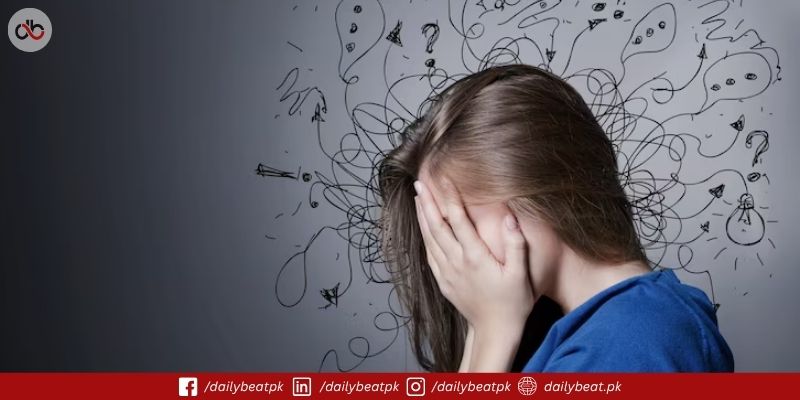Mental health affects every part of our lives. It shapes how we think, feel, and connect with others. But despite its importance, people often avoid talking about it. Fear, shame, and misunderstanding keep many of us silent. One of the most powerful ways to break this silence is by sharing personal stories.
I believe that when people speak openly about their mental health struggles, it creates space for others to feel seen and heard. Honest stories fight stigma. They build empathy. And they remind us that mental illness is more common than we think.
My Story: Learning to Speak Up
I never thought I would struggle with mental health. I saw myself as strong, capable, and always in control. But that changed a few years ago when I went through a difficult time. I lost interest in everything. I couldn’t sleep. I stopped answering calls. I was slowly drowning in anxiety and depression.
At first, I stayed quiet. I thought no one would understand. I was afraid of being judged or dismissed. For months, I kept pretending I was fine. But inside, I was breaking.
The turning point came when I read a blog by someone who described feelings that mirrored my own. Their words made me feel less alone. That’s when I decided to talk about my experience, first with a friend, then with a therapist. Eventually, I shared my journey publicly.
That decision changed everything. It didn’t just help me heal; it encouraged others around me to open up too.
The Power of Shared Experience
When we hear a personal story, it becomes easier to relate. Data and statistics can inform us, but stories move us. They build human connections.
For many, mental health feels abstract or distant until someone they know talks about it. A friend opening up about anxiety, a coworker describing their panic attacks, or a public figure sharing their experience with bipolar disorder. These moments start important conversations.
Stories challenge the idea that mental illness is rare or shameful. They show that recovery is possible. They remind us that struggling with your mental health doesn’t make you weak or broken. It makes you human.
Why Awareness Needs More Than Facts
Awareness campaigns often focus on symptoms, warning signs, or mental health definitions. These are useful, but they are not enough. People need to feel understood, not just informed.
When someone talks about their healing, it gives others hope. It offers a model of courage. It makes therapy feel less intimidating. It helps someone realize they are not alone in their struggle.
I’ve seen this firsthand. After sharing my story, several friends reached out privately. Some told me it was the first time they ever admitted to feeling depressed. Others asked how to find a therapist. That simple act of speaking up started a ripple effect.
Breaking Stigma Through Vulnerability
One of the biggest barriers to mental health support is stigma. Many people are afraid of being labeled “crazy” or “unstable.” They worry about how others will react. This fear keeps them from seeking help.
But when someone speaks openly about their journey, it creates a safer space for others. Vulnerability is powerful. It breaks stereotypes. It shows that mental illness doesn’t always look like the extreme cases shown in the media. It can look like a student, a parent, a teacher, or anyone around us.
Personal stories put a face to mental health challenges. They humanize the experience and build understanding. This is especially important in cultures where silence around emotions is strong.
Challenges of Speaking Out
Sharing your story isn’t always easy. It can feel risky. Some people might judge or misunderstand you. That’s why choosing who you open up to and how is important.
When I first talked about my experience, I faced some awkward reactions. A few people avoided the topic. Others gave unhelpful advice. But many responded with kindness. Some even thanked me for being honest.
Not everyone needs to share their story publicly. Even small conversations with friends or family can make a difference. The goal isn’t to share everything; it’s to start talking.
Healing Through Connection
Sharing your story is not just about helping others. It also helps you. Putting your journey into words can bring clarity. It allows you to process your experience. It can reduce feelings of shame.
When I first wrote about my depression, I expected to feel exposed. Instead, I felt lighter. I stopped hiding a part of myself. I accepted what I had gone through, and that gave me strength.
Hearing others’ stories also helped me. I learned from their coping methods, setbacks, and recoveries. It showed me that healing is possible, even when it feels far away.
Moving Forward Together
The more we share, the more we understand. Mental health should not be a secret. We should talk about it openly, like we do with physical health.
We need to create spaces where people feel safe to speak up. Schools, workplaces, and families must encourage these conversations. Social media, blogs, podcasts, and public talks can amplify these voices.
Even one story can change a life. One honest conversation can lead someone to seek help. That’s why I believe in the power of storytelling.
Final Thoughts
So, can personal stories help break the silence around mental health? Absolutely. They bring awareness to life. They give people hope. They fight stigma with honesty.
My story is one of many. And while every journey is different, the need for understanding is the same. Mental health conversations should not be rare or uncomfortable. They should be part of our everyday lives.
For the latest updates, read how Diane Guerrero’s unexpected musical voice became a symbol of strength.















